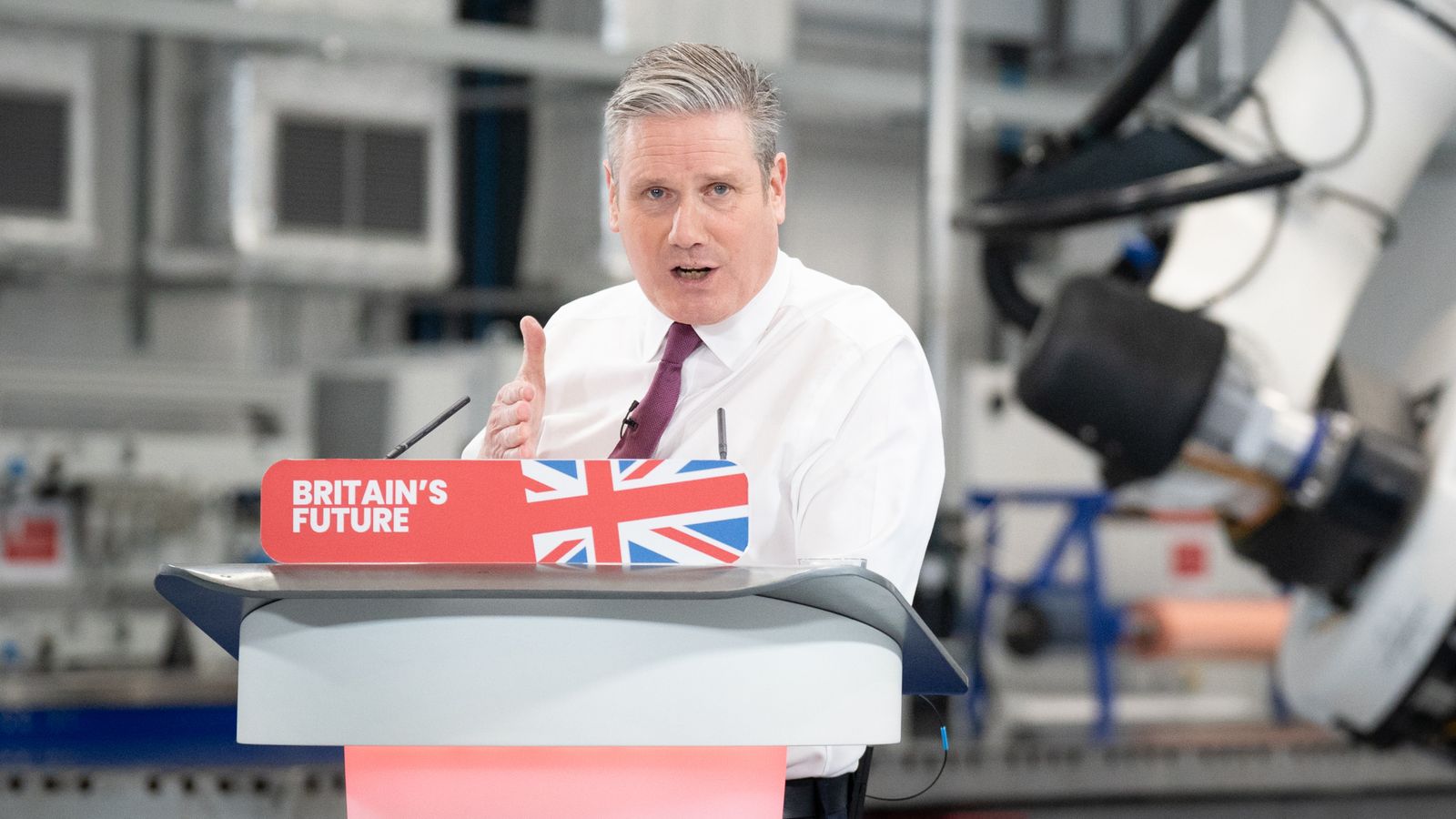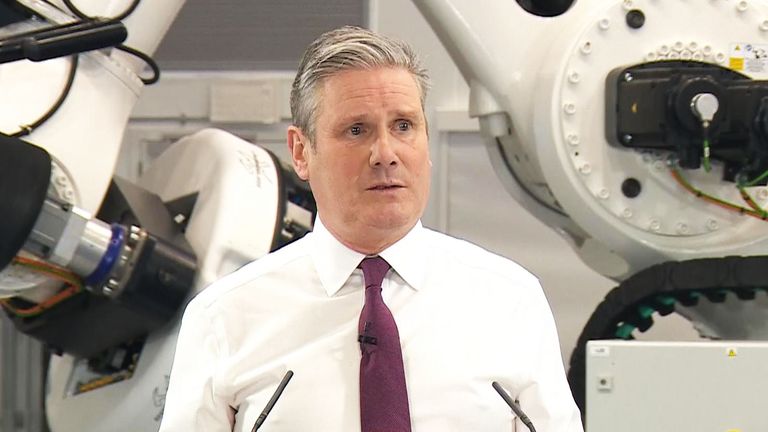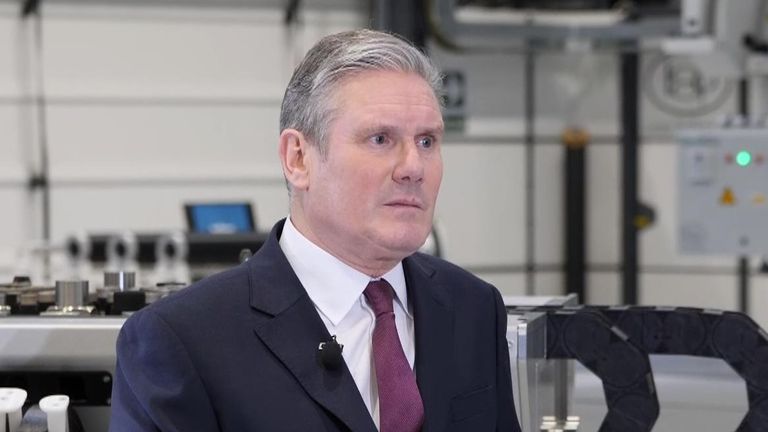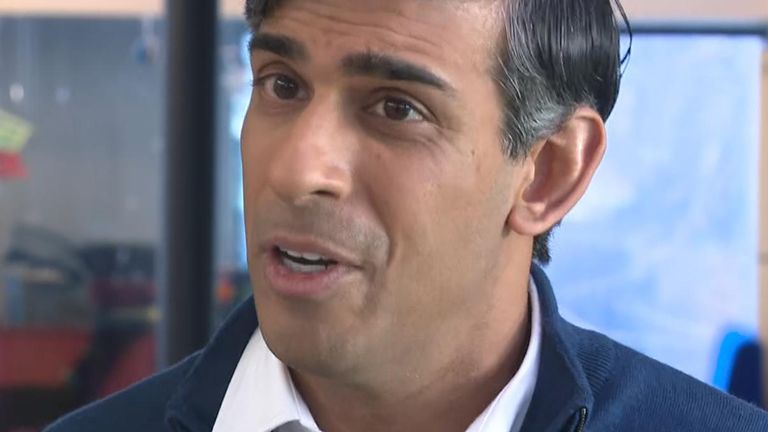It’s a sign of the times that the big political event to kick off 2024 was not an election-year framing speech by the current prime minister, but rather the address given by the man who, for now, is expected to be the next.
Sir Keir Starmer, speaking from the marginal seat of Filton and Bradley Stoke, which the Conservatives won in 2019, used his new year speech to implore the British people to vote for change.
Politics latest: The date thought to be the frontrunner after Sunak’s election hint
Brimming with rhetorical flourish, the Labour leader implored the public to reject Tory miserabilism and instead embrace Labour’s “project hope”.
But if Sir Keir wanted to use this moment to frame the arguments, it was his adversary who used his first appearance of 2024 to dictate the timing: Rishi Sunak, on a visit in Mansfield in Nottinghamshire, said the general election is likely to be in the second half of the year, dampening speculation he will go for May.
An autumn election would do two things: it gives Mr Sunak more time to close the poll gap by trying to chip away at his opponents, while offering voters something that might turn them back to the Tories.
With a budget in March, the prime minister made it clear on Thursday he wanted to keep “cutting taxes”, while an autumn election would give him a chance of a summer budget too, ahead of asking the country to go to the polls.
When you’re as far behind as Mr Sunak, the instinct is to go long in the hope that something turns up.
But delay is the last thing Sir Keir needs, because as the country eyes an incoming Labour government, scrutiny will turn away from Mr Sunak’s broken pledges and towards what an incoming Labour government will look like: what will they do on public spending, will they cut your taxes, will life really be different under Labour?
Sir Keir used his speech on Thursday to hammer home his change message.
And there are a handful of areas where he has policy to back it up: he has pledged to overhaul the planning regime in order to build 1.5 million more homes, halve domestic violence against women and girls, and achieve zero-carbon electricity by 2030.
But when it comes to the nuts and bolts of what a Labour government will offer beyond his promise to change the “tone” of politics, Sir Keir is still vague and, his detractors would argue, aping his main opponents.
On the bread and butter of what voters think about in a general election – what they are being taxed and where taxpayer money is being spent, there is hardly any difference between the two main parties.
On public services, Sir Keir simultaneously warns they are “on their knees”, while also saying he can’t turn on the spending taps.
And when it comes to tax, he is following where the Tories lead, committing to the imminent £20bn cut to national insurance while refusing to rule out tax cuts before a general election, despite the pressure on public services.
Nor will he talk about raising taxes, perhaps for fear of giving the Tories the “same old Labour” line of attack and spooking voters.
He did – after some prodding in my interview with him – commit to reverse a cut in inheritance tax if the Tories chose to implement that tax cut ahead of an election, but on everything else – unfreezing income tax and national insurance tax thresholds, cutting working people’s taxes before the election – he remained non-committal.
Instead, he is dodging difficult questions on tax and spend, by saying investment and the tax cuts for working people will come when there’s economic growth. The bedrock of his ambition is built on a growth promise he can’t guarantee.
Floating voters looking at what a Labour government will bring, will want more than tone, they will surely ask for substance.
Should the election come in November, it is an awfully long time not make concrete policy announcements, or spell out tax and spending plans.
For now, Sir Keir is starting the year as he means to go on: cautious and risk-averse.
Well ahead in the polls, he has much to lose and, for now at least, Labour’s ‘anything but the Tories’ appears to be a winning strap line for the next general election.
As for Mr Sunak, he will gear up his campaign next week and while there is despair among his parliamentary party who have all but given up, No 10 are fighting on and think there is still a chance to close the gap.
I’ve been told by one senior source that Conservative campaign chief Isaac Levido told the cabinet last month that 20% of those who intend to vote in the election still haven’t decided which party to vote for.
Their year will be less about convincing people about the merits of voting Conservative, and more about the risks of picking Labour.
It all adds up to a very long and bruising campaign, with both sides prepared to go low in order to try to win. Mr Sunak may be in No 10, but Sir Keir has it all to lose.



